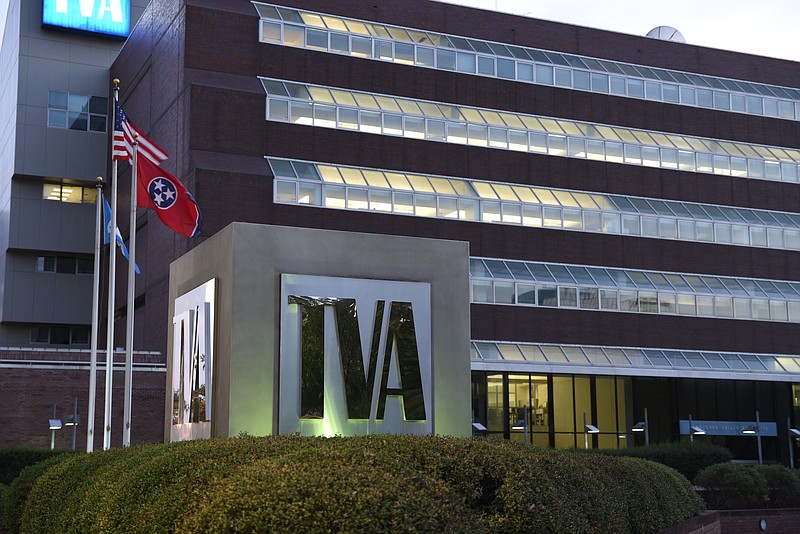A new study suggests that TVA's biggest customer could save at least $120 million a year by generating its own natural gas and solar power and joining a nearby regional transmission organization to replace the electricity supply it has gotten from the Tennessee Valley Authority over the past 81 years.
Memphis Light Gas & Water, the city-owned utility that now pays TVA about $1 billion a year for power, commissioned the Siemens consulting firm to analyze its power supply options for the future after four previous studies suggested that MLGW could save anywhere from $100 million to $450 million annually by splitting with TVA and getting its power elsewhere.
In a 75-page study released late Friday, Siemens analysts found that the Memphis utility could save $1.9 billion over the next two decades, or at least $120 million a year in 2018 dollars, by replacing TVA with a combination of self-generated power by MLGW and purchased power from the Midcontinent Independent System Operator (MISO). The study suggests that Memphis solicit requests for proposal from power suppliers to test the market and get cheaper and cleaner power than what TVA has provided for the 421,000 customers of MLGW.
The report, which studied 11 different alternative power options for Memphis, said the least cost option could reduce carbon emissions by 50% from what TVA provides by 2030.
Gary Vicinus, the project manager for Siemens, said MLGW will have to spend billions of dollars to build its own generation and install new transmission connections which limit some of the advantages of the cheaper solar and gas power prices quoted in previous supply studies. If it separates from TVA, MLGW would also have to make up for the tax-equivalent payments TVA provides Memphis and Shelby County.
But even considering such costs, Vicinus said MLGW could get cheaper and cleaner power and maintain reliability in accordance with North American Electric Reliability Commission standards by splitting with TVA and generating power itself and joining MISO to buy other power.
Dr. Stephen A. Smith, executive director of the Southern Alliance for Clean Energy and a member of the Power Supply Advisory Team formed by MLGW to review the study, said the Siemens report underscores the need for MLGW to solicit power supply offers as alternatives to TVA.
"We welcome the findings from this new study which, although conservative, clearly supports MLGW leaving the TVA system, a move that will both lower costs for customers and benefit the environment," Smith said. "We support MLGW moving forward with developing an RFP (requests for proposals) quickly to help start the clock on future energy savings."
MLGW must give TVA five years notice before it could severe its ties with America's biggest government utility. TVA is trying to entice its local power companies like MLGW to sign 20-year power purchase contracts by offering 3.1% rebates for those that agree to the long-term contracts. But Memphis is among 14 TVA distributors which have balked so far at signing the long-term agreements.
TVA President Jeff Lyash said Friday night that TVA is preparing a new offer to MLGW in the next couple of weeks that will highlight increased flexibility in promoting renewable energy and renew TVA's commitment to hold base rates steady for another decade while granting discounts for long-term power purchase agreements. TVA also plans to offer more assistance for energy conservation and efficiency programs in Memphis.
Lyash said there are risks in achieving the savings estimated for MLGW in the Siemens report because it requires the Memphis distributor to become its own power generator for the first time. If problems develop in construction or operations of such plants build by MLGW, power supplies could be less reliable - or more expensive.
"The important questions now are whether all of the risks and assumptions are clear and whether all of the benefits are real, " Lyash said. "I think when fully assessed, we'll be ble to show that the savings are not all that much and, just as importantly, the study didn't account for all of the value of TVA such as our economic development assistance. I didn't see anything in the Siemens study that shakes my belief that TVA still provides the best overall value proposition for Memphis."
A public hearing on the integrated resource plan and the Siemens report is scheduled for next Thursday and any decision to leave TVA would require approval by both the MLGW board and the Memphis City Council.
Contact Dave Flessner at dflessner@timesfreepress.com or at 757-6340
